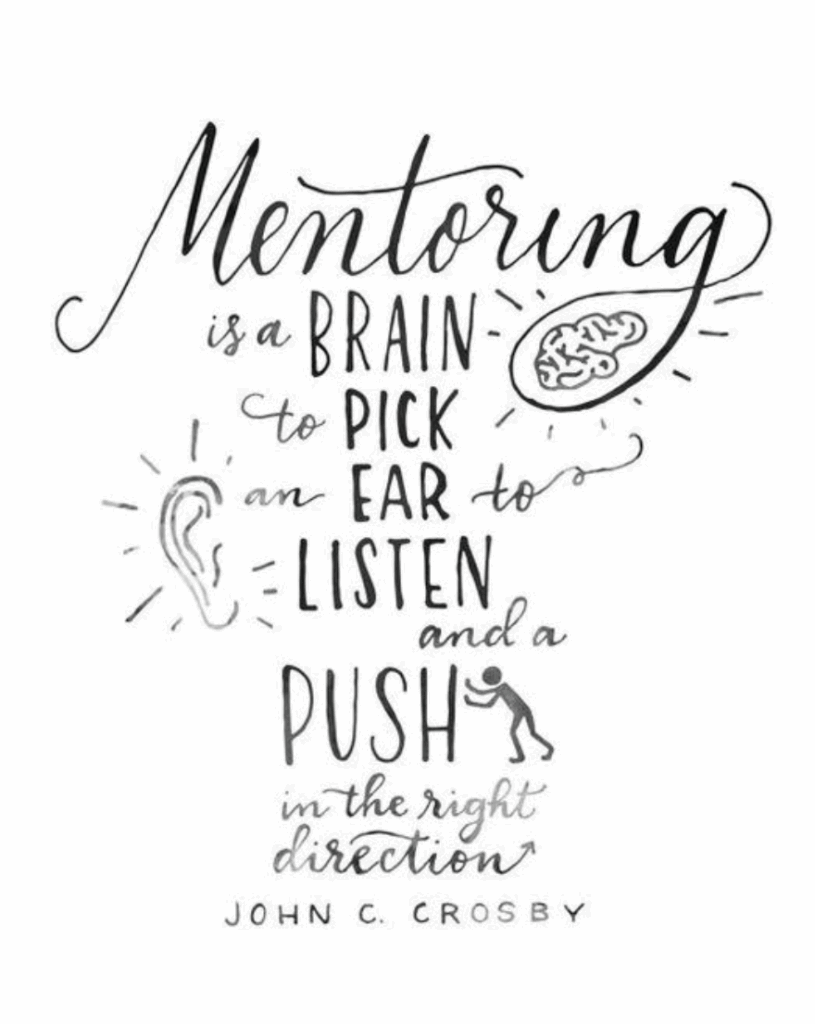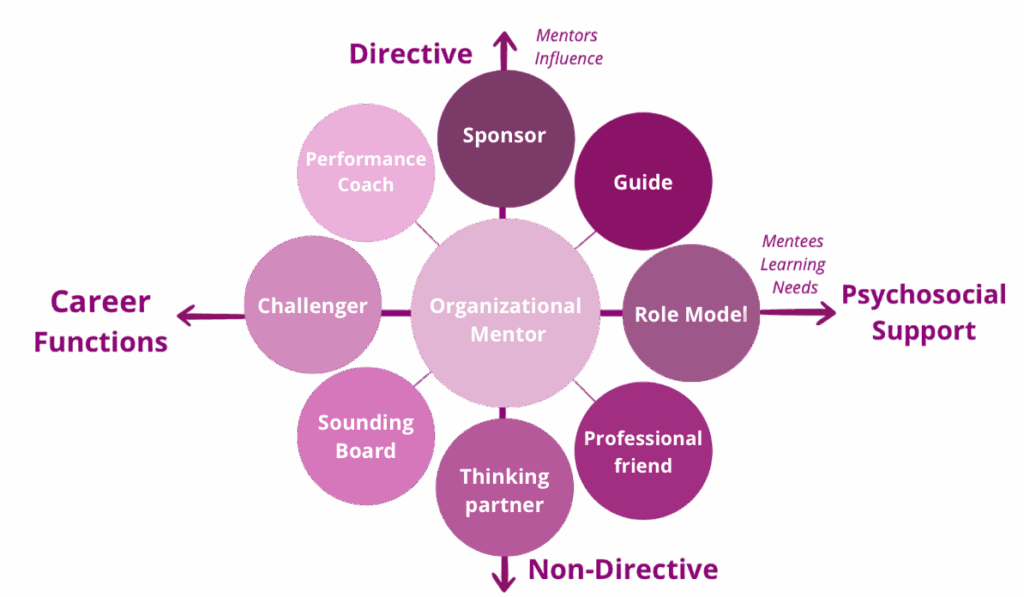
What is mentoring?
“A relationship in which a more experienced or more knowledgeable person helps to guide a less experienced or less knowledgeable person via advice, opinions, strategies and policies focused on career or life advancement.”
HR Research Institute, The State of Coaching and Mentoring 2021

Mentoring is …
- Providing a safe space;
- Offering constructive feedback;
- Sharing knowledge;
- Helping to handle challenges;
- Encouraging and motivating;
- Stretching comfort zones;
- Supporting more visibility and the development of a personal brand;
- Sharing relevant strategies for career progression and transition;
- Offering guidance on the culture and ‘unwritten rules’ of CERN and large collaborations.
Mentoring is not …
- Being an expert in everything;
- Guaranteeing advancement;
- Taking responsibility for someone’s career progression;
- A substitute for individual effort and contribution;
- One person dominating, directing or controlling someone’s decisions;
- Becoming dependent or reliant on someone else;
- Replicating a future version of oneself – mentorship is about guidance, not imitation.

The matching process
Matching aimed to create the best possible match according to the information provided by you (mentors & mentees).
Get to know each other, try to identify something you have in common.
Make personalities less important than the relationship.
The organizers can help through difficulties and, if it really doesn’t work, the relationship can finish any time.

The role of the Mentor
How can you listen actively?
- Listen without judge;
- Ask open questions (what, how, why);
- Reflect/summarise/confirm;
- Point out connections.
How can you contribute?
- Be available;
- Give feedback and your opinion;
- Challenge their views;
- Share your own relevant experiences.
How can you support your Mentee?
- Set goals with your mentee(s);
- Identify strengths and accomplishments;
- Visualize success;
- Networking;
- Career mapping and industry research;
- Practice assertiveness and interviews.
Which are the benefits of mentoring for Mentors?
- Leadership development;
- Reverse mentoring (exposure to new perspectives);
- Sense of helping, personal fulfilment;
- Better decision making / problem solving agility;
- Networking.
Find here some guidelines for mentors.

The role of the Mentee
What are you responsible for?
- Calling the meetings;
- Setting the goals for the exercise;
- Preparing an agenda;
- Taking notes.
How can you make the most of the mentoring exercise?
- Prepare for the sessions in advance;
- Get to know your mentor properly;
- Be willing to accommodate differences;
- Work to promote openness and trust;
- Respect your mentor’s expertise, be willing to take advice, and implement changes when necessary;
- Stay flexible as to how the relationship develops.
Which are the benefits of mentoring for Mentees?
- Career progression and planning;
- Increased self-awareness and self-confidence;
- Empowerment;
- Skill development;
- Networking.
How to set SMART goals with your mentor?
SMART goals are Specific, Measurable, Achievable, Relevant and Time-Bound goals that you can set and discuss with your mentors. To draft these important topics of discussion and growth, you can ask yourself:

After setting up SMART goals, ask yourself what type of mentor you would like to have. Remember that the mentoring relationship is based on trust and it may comprehend a confidentiality agreement.
If you you face any challenge in your relationship, please do not hesitate to contact us as soon as possible.